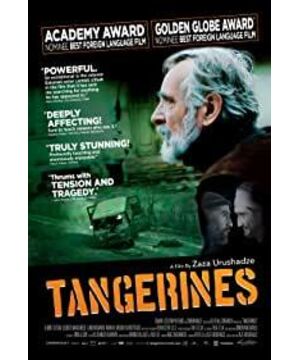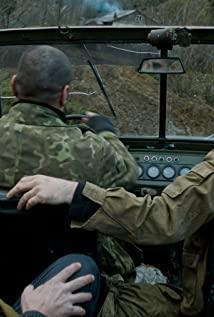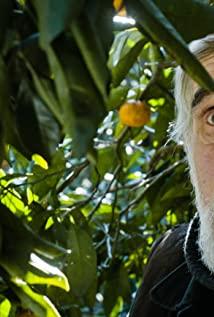Ivo, an Estonian, lives in Abkhazia by working as a carpenter to make a living. One day, when he was about to rush to make wooden boxes to harvest citrus for his neighbors, a war suddenly broke out in front of their house. Ivo rescued an Abu. The Chechen mercenary hired by Haz, and another young Georgian soldier, were healing under the same roof, and the conflict seemed to be about to break out. This is the plot of the movie "Orange Harvest", and it is also a realistic portrayal of the small country on the border between Europe and Asia under the pressure of power.
Estonia, Georgia, Abkhazia, and Chechnya, these small countries on the border between Europe and Asia, are unfamiliar names to most Taiwanese. They have a history of more than a thousand years. However, due to their location in Rome, Persia, Mongolia China, Turkey, Russia, as well as Denmark, Finland and other huge empires in northern Europe, have been repeatedly invaded by foreign powers for many years. Until modern times, they have not been able to get rid of the international politics of the post-Cold War era, and they have become front-line victims of war on behalf of major powers.
In 2008, the Abkhazians and Georgians faced off again in the South Ossetia War. At that time, Russian President Dmitry Medvedev announced the recognition of the independence of South Ossetia and Abkhazia, but was met by European and American countries and NATO, International organisations such as the OSCE are opposed. (Photo: Wikipedia)
Abkhazia was originally established as a kingdom in the 8th century, and was later annexed by Georgia as part of it. Then Georgia was invaded by the Mongol Empire in the 12th century, conquered by the Ottoman Empire in the 16th century, and controlled by the Tsarist Russia in the 18th century. Occupied by the Soviet Union, Abkhazia became an autonomous body and joined the Soviet Union through Georgia. Its 200-kilometer Black Sea coast is of high strategic significance.
Abkhazia, located on the east coast of the Black Sea, unilaterally declared its independence from Georgia in 1992. In the same year, Georgia led Abkhazia to carry out ethnic cleansing. Abkhazia, aided by Russian, Armenian militias and Chechen rebels, fought off Georgia in September 1993 in a war of independence known as the "Citrus War". (The picture shows the Black Sea coast outside the Abkhaz capital Suhami. AFP)
Estonia has been ruled by Nordic powers such as Denmark, Sweden, Poland and other countries for many times since the 13th century, and was finally annexed by Russia in the early 18th century. In the 19th century, as part of Russia's colonial expansion plan, as well as Russia's strategy of competing with Ottoman Turkey and European powers for the Black Sea coast, Estonian serfs were continuously exported to Siberia and the Caucasus where Georgia and Abkhazia were located, strengthening Russia. control over the place. Estonian farmers brought the citrus crop to Abkhazia, where the subtropical climate of the Black Sea coast is more suitable for growing than the home country on the Baltic coast, so citrus has become a standard sight in Estonian villages in Abkhazia.
The yellow oranges symbolize the rich land, but the war has made it difficult for the residents of the Black Sea coast to live in peace. (Photo: Haipeng Pictures)
In 1991, when the Soviet Union disintegrated, Estonia, Georgia and other countries declared their independence one after another. In July 1992, Abkhazia also announced its independence from Georgia. The Georgian army entered Abkhazia and carried out genocide in August of the same year. Abkhazia Inviting Russian, Armenian militias and Chechen rebels to help, the young Georgian troops without military training were defeated by professional mercenaries to counterattack and were defeated in September 1993. The Abkhaz independence war, known as the "Citrus War", killed 8,000 people on both sides and left 200,000 Georgians to become refugees. Abkhazia's sovereignty is still only recognized by Russia and a few countries. Georgia has been working hard to move closer to the European Union after its independence, and tried to apply to join NATO. The relationship between Russia and Georgia has become more tense, and Abkhazia has become one of the political and military chips to contain Georgia.
In the house of the Estonians, the Chechen mercenaries hired by Abkhazia and the young Georgians who joined the army sat facing each other. (Photo: Haipeng Pictures)
The film "Orange Harvest" simply uses the plot of a peasant to rescue two soldiers from hostile countries. In just one and a half hours, the entanglements of these countries for hundreds of years are presented on the big screen in a concrete and subtle way. As the plot progresses, the audience gradually enters into this history, and the director and screenwriter are really skilled. Georgia-based director Zaza Urushage, whose long-lens technique, slow-moving camera, and deep scene descriptions seem to have obtained the true biography of Eastern European and Russian film masters. The long-shot opening outside the carpenter’s workshop is The clever use of the scene shows the incompatibility between Ivo and the Abkhaz mercenaries, and the long shot at the end enlarges the historical pattern and makes the geopolitical significance behind the dispute clear.
As a part of East Asian political wrestling, Taiwan is actually very suitable for narrating macro stories from the life course of small people, and there are quite a lot of real themes and landscapes that can be used. "Orange Harvest" is a very good example, showing the possibility of shooting a big era from a small cost, a small scene, and a small plot.
View more about Tangerines reviews









